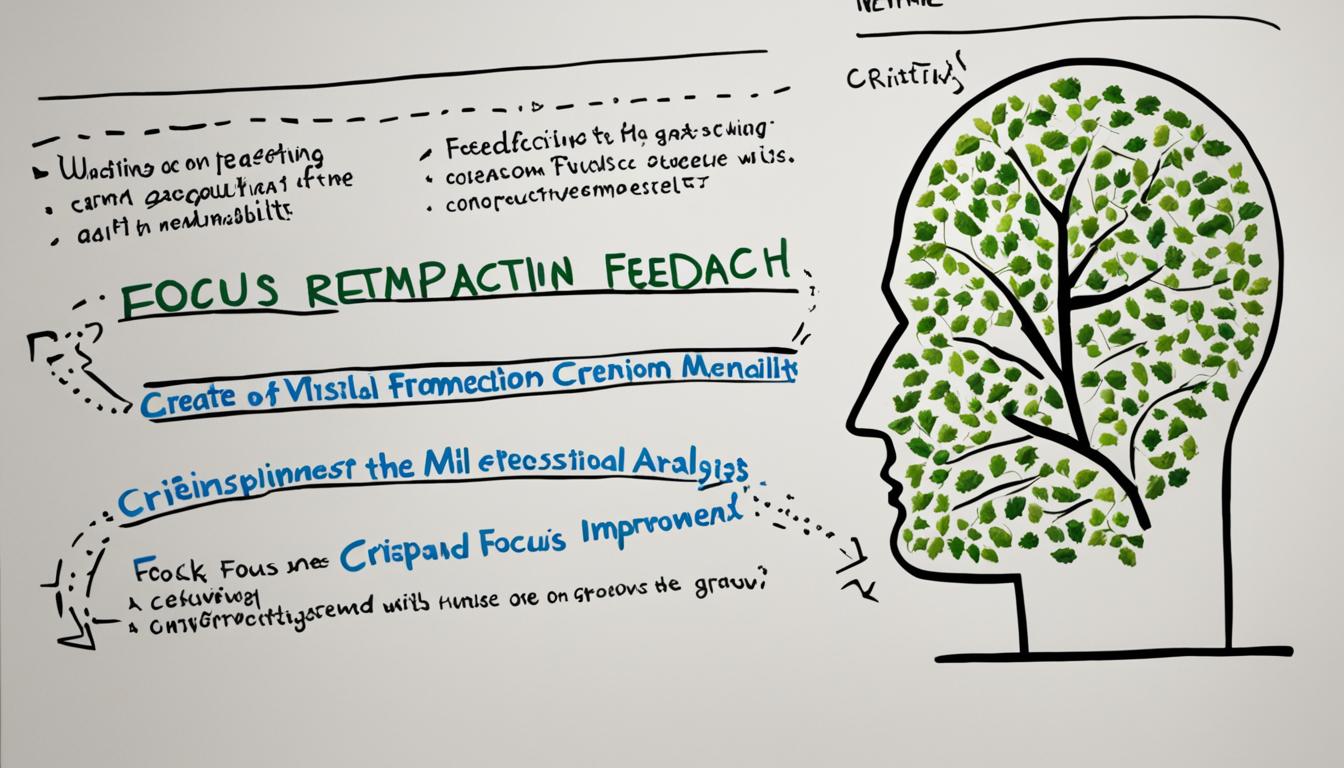Whether you’re a beginner or a seasoned golfer, managing anxiety and nerves on the golf course is crucial for optimal performance. Golf can be a mentally challenging game, and anxiety can negatively impact your focus, decision-making, and overall enjoyment. But fear not! We’re here to provide you with expert strategies to help you overcome golf anxiety and nerves effectively.
Dealing with nerves on the golf course is common, but with the right techniques, you can conquer them and play your best game. From pre-shot routines to visualization exercises, we’ll guide you through a range of mental game tips that will help you stay calm, confident, and in control. By incorporating these strategies into your golf routine, you’ll be able to navigate the course with ease and perform at your peak.
Key Takeaways:
- Preparation and sticking to a routine can help reduce golf anxiety.
- Visualizing success and suppressing your emotions are powerful tools for managing nerves.
- Finding peaceful places and trusting your swing can help you relax and stay focused.
- Maintaining a positive mindset and believing in yourself are essential for overcoming anxiety.
- Reframing nerves as excitement and adopting mindfulness practices can shift your mindset and boost performance.
Be Prepared and Stick to Your Routine
To effectively cope with pre-shot nerves in golf, it’s important to be prepared and stick to your routine. By following a consistent routine, you can create a sense of familiarity and confidence, which can help reduce golf nervousness. Here are some strategies to help you stay centered and focused on the course:
1. Gather Your Gear
Ensure you have everything you need for the game. Double-check your golf bag to make sure you have all the necessary equipment, such as clubs, balls, tees, and a divot tool. Don’t forget to bring some snacks and water to keep you energized throughout the round. Dress appropriately for the weather conditions to avoid any discomfort that may contribute to nervousness.
2. Stick to Your Warm-up Routine
Stick to your regular warm-up routine before each round. This can include stretching exercises, swinging your clubs, and practicing your putting. By going through the same warm-up routine, your body and mind will be ready for the game, helping to alleviate pre-shot nerves.
3. Visualize Success
Before stepping onto the first tee, take a moment to visualize success. Close your eyes and envision yourself hitting perfect shots, making accurate putts, and achieving your goals. Allow yourself to feel the positive emotions associated with success. This visualization exercise can help calm your nerves and build confidence in your abilities.
“The more times we can put ourselves in those situations – visualising all possible outcomes – the more prepared we will be when they actually happen.” – Jason Day
4. Maintain a Consistent Pre-shot Routine
Developing a pre-shot routine and sticking to it can help reduce anxiety and promote focus. Your routine may include selecting a target, taking practice swings, aligning your body, or deep breathing. Whatever routine works best for you, make sure to practice it consistently during both practice and actual rounds.
5. Take Advantage of Visualization Techniques
Use visualization techniques during your pre-shot routine. Take a moment to mentally walk through your shot, picturing the desired trajectory, landing spot, and ball flight. This mental rehearsal can help calm your nerves and enhance your focus on the shot at hand.
6. Utilize Positive Self-talk
Incorporate positive self-talk into your routine. Encourage yourself with affirmative statements such as “I’ve practiced this shot many times” or “I am confident in my abilities”. By replacing any negative self-talk with positive affirmations, you can boost your confidence and reduce pre-shot nerves.
7. Stay Mindful and Present
Stay mindful and present during each shot. Focus on the current moment and the task at hand, rather than worrying about past mistakes or possible future outcomes. Be fully aware of your surroundings, feel the weight of the club in your hands, and listen to the sounds of the course. This mindfulness practice can help calm your nerves and improve your overall performance.
By being prepared and sticking to your routine, you can effectively cope with pre-shot nerves in golf. These strategies will help you stay focused, confident, and in control on the course, ultimately enhancing your overall performance and enjoyment of the game.
Visualize Success and Suppress Your Emotions
When it comes to conquering golf fear and anxiety, visualization techniques can be incredibly powerful. Before stepping onto the course, take a moment to imagine yourself playing a great game and achieving your goals. Visualize each shot, focusing on the precision, power, and control you desire. By visualizing success, you can build confidence and reduce anxiety.
However, it’s also essential to learn how to suppress your emotions on the course. Let go of any ego-driven thoughts or fear of embarrassment. Instead, concentrate on one shot at a time. Channel your energy into the present moment and stay composed. By managing your emotions effectively, you can better navigate challenging situations and perform at your best.
“Visualization and emotional control are key techniques to calm golf jitters and overcome anxiety on the golf course.”
Remember, golf is as much a mental game as it is physical. Practicing visualization and emotional control techniques can significantly impact your performance and enjoyment of the sport. By focusing on positive outcomes and quieting any negative thoughts, you can navigate the course with confidence and conquer your golf jitters and anxieties.
Try these techniques to calm your golf jitters:
- Pre-round visualization: Before starting your round, find a quiet spot and close your eyes. Picture yourself executing each shot flawlessly, visualizing the flight of the ball and the feeling of success. This mental rehearsal can build confidence and alleviate anxiety.
- Deep breathing: In moments of tension or nervousness, take deep breaths to calm your mind and relax your body. Breathe in slowly, hold for a few seconds, and exhale fully.
- Mindfulness: Practice being present on the golf course. Focus on the sights, sounds, and sensations around you. This can help distract from anxious thoughts and keep you centered in the present moment.
- Positive affirmations: Repeat positive phrases or affirmations to yourself, such as “I am confident and capable” or “I trust my swing.” By reinforcing positive beliefs, you can counteract any self-doubt and build resilience.
By incorporating these techniques into your golf routine, you can develop a stronger mental game and conquer your golf fears and anxieties. Remember, the mind is a powerful tool, and by visualizing success and suppressing your emotions, you can unlock your true potential on the course.

| Techniques to Calm Golf Jitters |
|---|
| 1. Pre-round visualization |
| 2. Deep breathing |
| 3. Mindfulness |
| 4. Positive affirmations |
Find Peaceful Places and Trust Your Swing
Create mental spaces or distractions that help you relax and switch off from the pressure of the game. This can be listening to music or finding a quiet spot to read before your round.
During the game, focus on peaceful places like the trees or the sky to distract yourself from performance anxiety.
In the midst of the golf course, take a moment to look up at the majestic trees swaying in the breeze. Let the beauty and tranquility of nature calm your mind and soothe your nerves.
To further reduce golfing anxiety, trust your swing and avoid overthinking or making corrections mid-swing. Stay relaxed, balanced, and trust your abilities.
Benefits of Finding Peaceful Places
Finding peaceful places on the golf course can have numerous benefits for your mental game:
| Benefits | Description |
|---|---|
| Relaxation | Creating mental spaces helps induce a state of relaxation, enabling you to better manage stress and anxiety. |
| Distraction | Focusing on peaceful places like the trees or the sky can redirect your attention away from performance anxiety, allowing you to stay present and focused on the game. |
| Mind-Body Connection | Immersing yourself in tranquil surroundings can help establish a stronger mind-body connection, enhancing your swing and overall performance. |
By finding peaceful places and trusting your swing, you can cultivate a sense of calmness, confidence, and consistency on the golf course. Embrace the serenity of nature and let it elevate your mental training for golfers, reduce golfing anxiety, and improve your game.
Stay Positive and Believe in Yourself
Maintaining a positive mindset is crucial in managing golf performance anxiety. Even if you’re having a bad round, remember that every shot is an opportunity to excel and improve. Believe in yourself and stay positive until the very end. Keep focusing on the process rather than the outcome, and trust that you have the skills to succeed.
When facing challenges on the golf course, it’s easy to get discouraged. However, by adopting a positive attitude, you can maintain your confidence and resilience. Remind yourself of your past successes and the progress you’ve made in your game. Embrace the belief that you have what it takes to overcome any obstacles and achieve your golfing goals.
One effective way to stay positive is to cultivate a growth mindset. Understand that making mistakes and encountering setbacks is a normal part of the learning process. Instead of viewing them as failures, see them as opportunities for growth and improvement. By reframing the way you perceive setbacks, you can maintain a positive outlook and continue to progress as a golfer.
Quotes:
“Believe you can and you’re halfway there.” – Theodore Roosevelt
In addition to staying positive, it’s important to surround yourself with supportive individuals who believe in your abilities. Seek out like-minded golfers who share your passion and encourage each other to stay positive and motivated. Sharing experiences and tips can also help you gain valuable insights and strategies for managing golf nervousness.
Benefits of Staying Positive:
- Improved focus and concentration
- Enhanced resilience and mental toughness
- Increased confidence in your abilities
- Greater enjoyment of the game
To summarize, staying positive and believing in yourself are essential strategies for managing golf performance anxiety. By maintaining a positive mindset, embracing a growth mindset, surrounding yourself with supportive individuals, and recognizing the benefits of positivity, you can overcome nervousness and unlock your full potential on the golf course.
| Strategies for Golf Nervousness | Managing Golf Performance Anxiety |
|---|---|
| 1. Maintain a positive mindset | 1. Embrace a growth mindset |
| 2. Surround yourself with supportive individuals | 2. Seek out like-minded golfers |
| 3. Recognize the benefits of positivity | 3. Share experiences and strategies |
Reframe Your Nerves as Excitement
When it comes to golf, nerves are often seen as a negative emotion that can hinder your performance on the course. But what if we told you that you could transform those jitters into excitement?
By reframing your nerves as excitement, you can harness the energy they bring and use it to fuel your game. The physical sensations of both emotions are similar, so by telling yourself that you’re excited, you can channel that energy into positive performance.
So, the next time you feel those butterflies in your stomach before a big shot, pause and remind yourself that it’s not anxiety but excitement. Embrace the challenge ahead and let the adrenaline flow.
Take Deep Breaths and Repeat Positive Affirmations
To shift your mindset from anxiety to anticipation, take a few deep breaths to calm your body and focus your mind. Inhale deeply through your nose, allowing the air to fill your lungs, and exhale slowly through your mouth, releasing any tension.
In addition to deep breathing, repeating positive affirmations can help reframe your nerves. Tell yourself statements like, “I am excited to be on the course,” “I trust my abilities,” and “I am ready for this challenge.” By reinforcing these positive thoughts, you’ll boost your confidence and reduce anxiety.
“I am excited to be on the course. I trust my abilities. I am ready for this challenge.”
Remember, conquering golf fear and anxiety is not about eliminating nerves entirely but learning to manage them and use them to your advantage. So, the next time you feel nervous on the course, reframe those nerves as excitement, take some deep breaths, and repeat positive affirmations. Embrace the opportunity before you and watch your performance soar.

Prepare for the First Tee Jitters and Adopt Mindfulness
The first tee can be an intimidating place for many golfers, causing nervousness and jitters. To overcome these feelings and set yourself up for success, it’s important to prepare both physically and mentally.
Arriving early to the golf course allows you time to warm up and get comfortable with your surroundings. Spend some time on the driving range practicing your first tee shot to build confidence. By familiarizing yourself with the swing and taking a few successful shots, you’ll start your round on a positive note.
Another technique that can be highly beneficial in managing golf jitters is adopting a mindfulness practice. Mindfulness involves being present in the moment and acknowledging your thoughts and feelings without judgment. By practicing mindfulness, you can reduce anxiety on and off the golf course.
“Mindfulness helps us become aware of our thoughts and emotions without getting caught up in them. By focusing on the present moment and accepting our experience, we can cultivate a sense of calmness and clarity.”
– Jon Kabat-Zinn
To incorporate mindfulness into your golf game, take a moment before each shot to focus on your breath and bring your attention to the present. Let go of any distractions or worries and instead, focus on gratitude and positivity. By cultivating a mindset of appreciation for the opportunity to play and a belief in your abilities, you can calm your nerves and perform at your best.
Benefits of Mindfulness in Golf:
- Enhances focus and concentration
- Reduces stress and anxiety
- Encourages acceptance and resilience
- Improves decision-making and shot execution
- Boosts enjoyment and overall performance
By combining physical preparation with mental techniques like mindfulness, you can effectively manage first tee jitters and approach your golf game with a calm and focused mindset.
Conclusion
Conquering golf anxiety and nerves is a journey that requires dedication and the application of various strategies. By implementing these golf mental game tips, you can effectively cope with pre-shot nerves and perform at your best on the course.
First and foremost, being prepared and sticking to your routines are key. Make sure you have everything you need for the game and follow a consistent warm-up routine to create a sense of familiarity and confidence. Additionally, visualizing success and suppressing your emotions can help calm your nerves. Imagine yourself playing a great game and focus on one shot at a time to stay present and composed.
Finding peaceful places and trusting your swing are crucial for reducing anxiety. Create mental spaces or distractions that help you relax and switch off from the pressure of the game. Focus on peaceful elements of nature on the course to distract yourself from performance anxiety. Trust in your abilities, avoid overthinking, and stay relaxed during your swing.
Staying positive and reframing nerves as excitement can make a significant difference in your performance. Maintain a positive mindset, even during a challenging round, and believe in your skills until the very end. Lastly, prepare for the first tee jitters by arriving early, practicing your first tee shot, and adopting mindfulness both on and off the course.
Remember, coping with pre-shot nerves in golf is a continuous process. With practice and the right mindset, you can overcome anxiety and unlock your full potential on the greens. So embrace the challenge, implement these tips, and enjoy the game to its fullest!
FAQ
How can being prepared and sticking to a routine help reduce golf anxiety?
Being prepared and sticking to a routine can create a sense of familiarity and confidence on the golf course. By ensuring you have everything you need and following your regular warm-up routine, you can reduce anxiety and feel more prepared for the game.
How can visualizing success and suppressing emotions help conquer golf anxiety?
Visualizing success before your round can help calm your nerves and build confidence. By imagining yourself playing a great game and achieving your goals, you can reduce anxiety. Additionally, suppressing emotions and focusing on one shot at a time can help you stay present and composed on the course.
How can finding peaceful places and trusting your swing help reduce golfing anxiety?
Creating mental spaces or distractions that help you relax and switch off from the pressure of the game can reduce golfing anxiety. Focusing on peaceful places like the trees or the sky can distract you from performance anxiety. Trusting your swing and avoiding overthinking or making mid-swing corrections can also help you stay relaxed and decrease anxiety.
How important is maintaining a positive mindset in managing golf performance anxiety?
Maintaining a positive mindset is crucial in overcoming golf anxiety. Even if you’re having a bad round, every shot is an opportunity to excel and improve. By focusing on the process rather than the outcome and believing in yourself, you can stay positive and perform at your best.
How can reframing nerves as excitement help in reducing golfing anxiety?
Reframing nerves as excitement can help you channel that energy into positive performance. By telling yourself you’re excited rather than anxious, you can shift your mindset and approach the game with anticipation. Deep breaths and positive affirmations can also aid in changing your perspective.
How can I prepare for first tee jitters and adopt mindfulness to reduce golf anxiety?
To prepare for first tee jitters, arrive early to warm up and practice your first tee shot on the range. This can help build confidence and reduce anxiety. Additionally, adopting a mindfulness practice can help calm your nerves on and off the course. Being present in the moment, focusing on gratitude, and embracing positivity can all contribute to reducing golf anxiety.
What are some effective strategies to overcome golf anxiety and nerves?
Apart from being prepared and sticking to a routine, visualizing success, suppressing emotions, finding peaceful places, trusting your swing, staying positive, reframing nerves, and adopting mindfulness can all help in conquering golf anxiety and performing at your best.
How can I reduce golfing anxiety and nervousness?
By implementing various strategies, such as staying prepared, visualizing success, managing emotions, finding peaceful places, maintaining a positive mindset, reframing nerves, and adopting mindfulness, you can effectively reduce golfing anxiety and nervousness.



